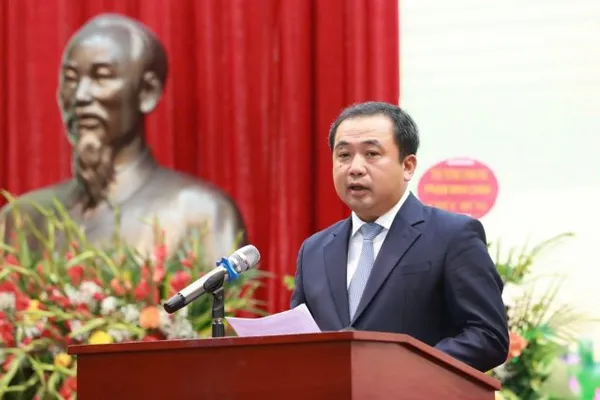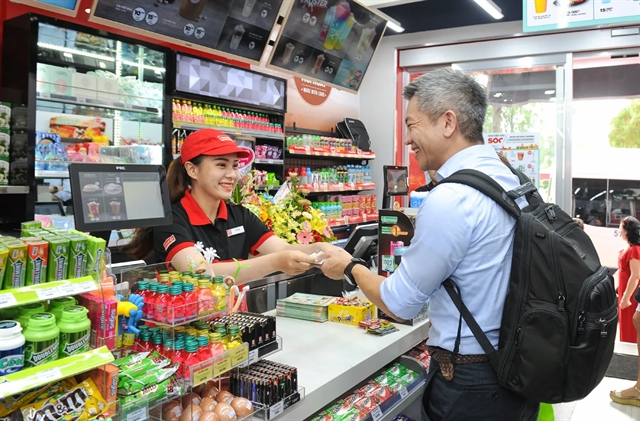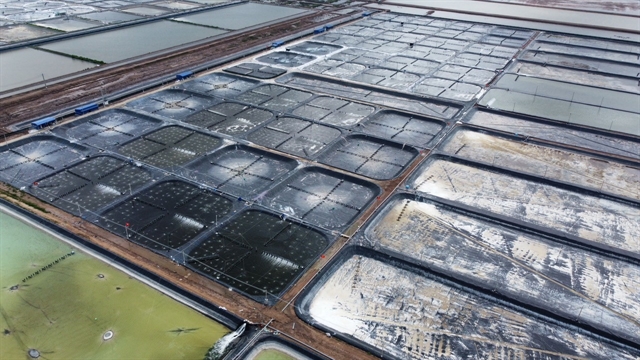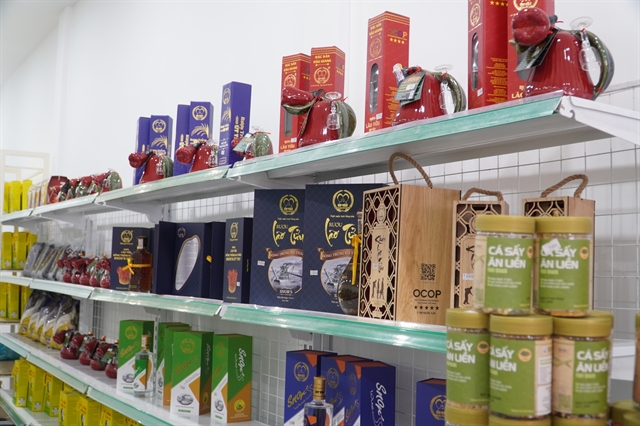 Society
Society
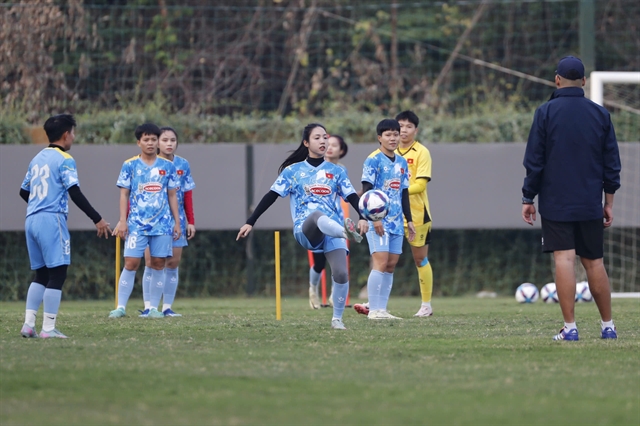
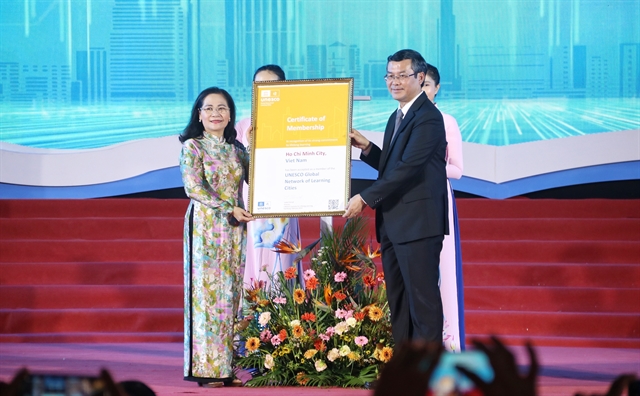 |
| HCM city officially received a certificate of membership of the UNESCO Global Network of Learning Cities on March 30. — VNA/VNS Photo Thu Hương |
HCM CITY — The southern metropolis of HCM City has officially become a member of the UNESCO Global Network of Learning Cities (GNLC).
The municipal People's Committee on March 30 organised a ceremony to receive the certificate of membership of GNLC.
Previously, UNESCO announced a list of 64 cities from 35 countries recognised as members of the GNLC, including the two Vietnamese cities, HCM City and Sơn La.
Speaking at the event, municipal People’s Council chairwoman Nguyễn Thị Lệ said becoming an official member of GNLC is a great honor.
This is the result of the city’s outstanding efforts to build a lifelong learning environment for people in the city, which demonstrates the world's recognition of the policies, commitments, and efforts of Việt Nam in general and HCM City in particular in ensuring quality, equitable, comprehensive education, promotes lifelong learning opportunities for everyone, and contributes to raising the status of the country's education.
This is also an opportunity for all people and the city's administration to continue to put forward action programmes to make the southern metropolis a place where all people, regardless of their age or nationality, can continue to learn.
“It creates an open learning environment where each citizen can develop the skills and knowledge needed to adapt and thrive in the digital world,” she said.
The city is committed to continuing to work closely with other members of the network to share experiences, learn and build better learning environments for all, she said.
Jonathan Wallace Baker, Chief Representative of UNESCO in Việt Nam, said the city is a vibrant economic and cultural centre of the country and the region.
UNESCO is very interested in the city’s initiative to build a set of criteria on happy schools, based on the UNESCO's global happy schools framework. “This model will be at the heart of educational innovation, placing happiness as a key factor in improving learning quality,” he said.
On this occasion, the municipal People's Committee launched an action programme to build ‘a UNESCO global learning city’ in the 2024-30 period in the city.
Under the programme, the city continues to effectively deploy learning-related activities, while promoting the participation of the entire State system in supporting and mobilising resources to promote lifelong learning opportunities.
It will create fundamental changes in building a learning city and learning society, ensuring that by 2030 all citizens have equal opportunities to access the open education system, contributing to developing high-quality human resources to meet international integration requirements.
It will develop mechanisms and policies, and mobilise financial resources and coordination of organisations and individuals in promoting lifelong learning.
It will also strive to complete the goals of the project to build a learning society by 2030.
The municipal People's Committee vice chairman Dương Anh Đức said the city will have more action programmes to ensure lifelong learning for people.
He asked the city’s Department of Education and Training and relevant departments and organisations to effectively implement the Party and State's guidelines and policies on education, training promotion and talent attraction.
The city will promote the application of information technology and digital transformation in implementing the construction of a learning city, develop management software, and report on the results of implementing criteria and indicators in UNESCO’s Learning City Criteria Set. — VNS

